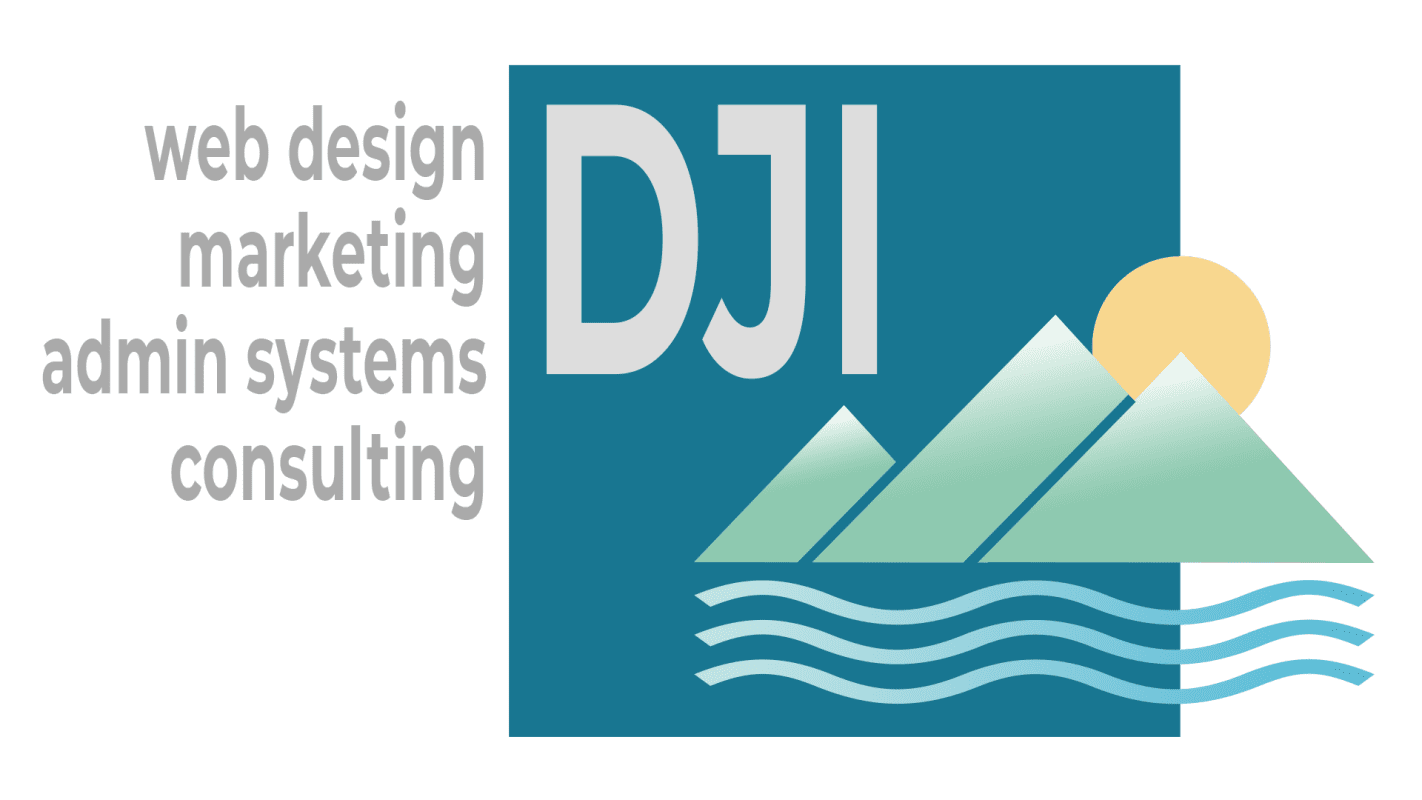These notes may well be significantly revised on a regular basis. If this sort of thing is of any interest I'd urge you to invest in yourself: bookmark and check back for regular updates, or perhaps even sign-up below for update notifications.
Click here to learn more about 'Pragmatics' and browse all my Notes ...
In today’s competitive business landscape, it is essential to maximise your marketing efficiency and productivity to stay ahead of the game. By implementing strategies that improve your marketing ROI and increase productivity in your marketing efforts, you can achieve better results and drive success in your business ventures. In this article, we will explore techniques and best practices to help you achieve these goals.
Key Takeaways:
- Focusing on marketing efficiency and productivity can lead to improved ROI and better results.
- Implementing cost-effective strategies can enhance overall marketing efficiency.
- Streamlining marketing processes and optimizing resources can maximise productivity.
- Leveraging data and analytics can help boost marketing performance.
- Effective time management is crucial for increasing productivity in marketing.
Understanding the Importance of Marketing Efficiency
Before diving into specific strategies, it is crucial to understand the importance of marketing efficiency. In today’s competitive business landscape, maximizing your marketing efficiency is key to staying ahead. By implementing cost-effective marketing strategies and enhancing overall marketing efficiency, you can drive better results while optimizing your resources.
Marketing efficiency refers to the ability to achieve your marketing goals and objectives in the most effective and efficient way possible. It involves utilizing your resources wisely, minimizing wastage, and achieving the desired outcomes while reducing costs.
“Marketing efficiency is not just about doing more; it’s about doing the right things in the most effective way.”
Implementing cost-effective marketing strategies allows you to make the most of your budget and resources. By identifying the channels and tactics with the highest potential for reaching your target audience and generating leads, you can optimise your marketing efforts and increase your return on investment (ROI).
Enhancing marketing efficiency also means streamlining your processes and workflows. By automating repetitive tasks, integrating systems, and eliminating manual bottlenecks, you can save time and improve productivity. This enables your marketing team to focus on high-value activities, such as customer engagement and campaign analysis, resulting in better outcomes.
The Benefits of Marketing Efficiency
Why is marketing efficiency important? By enhancing your marketing efficiency, you can:
- Optimise your budget and resources, stretching them further for maximum impact
- Minimise waste and inefficiencies, saving time and money
- Improve your marketing ROI by implementing cost-effective strategies
- Generate higher-quality leads and increase conversion rates
- Enhance customer satisfaction and loyalty through targeted and personalised marketing efforts
- Stay agile and adaptable in a constantly evolving marketplace
Investing in marketing efficiency not only benefits your business’s bottom line, but it also helps you stay competitive and relevant in today’s digital landscape. It allows you to make data-driven decisions, leverage emerging technologies, and adapt to changing consumer behaviours and preferences.
In the next sections, we will explore specific strategies and techniques to help you maximise your marketing efficiency and achieve better results. By adopting these approaches, you can unlock the full potential of your marketing efforts and drive success in your business ventures.
Streamlining Marketing Processes for Optimal Efficiency
To achieve optimal efficiency in your marketing efforts, it is crucial to streamline your marketing processes. By streamlining, you can eliminate unnecessary steps and reduce repetitive tasks, allowing your team to focus on high-value activities that drive results. Streamlining your marketing processes not only saves time and resources but also ensures that your marketing campaigns are executed smoothly and effectively.
One technique to streamline marketing processes is to identify and eliminate any bottlenecks or inefficiencies within your current workflow. Conduct a thorough analysis of your marketing operations, from campaign planning to execution, and pinpoint areas that can be streamlined. This may involve automating repetitive tasks, optimizing communication channels, or implementing project management tools to centralise campaign assets and streamline collaboration.
Another key aspect of streamlining marketing processes is to optimise your marketing resources. This involves assessing your team’s skill sets and allocating resources accordingly. By assigning tasks to team members based on their strengths, you can improve productivity and ensure that each team member is working on projects that align with their expertise. Additionally, consider outsourcing specific tasks or partnering with external agencies to supplement your team’s capabilities and optimise resource allocation.
Case Study: How Company X Streamlined Their Marketing Processes
“At Company X, we recognised the need to streamline our marketing processes to enhance efficiency and productivity. By conducting a thorough review of our operations, we identified redundant tasks and inefficient communication channels that were hindering our progress. We implemented project management software to centralise our campaign assets, automate repetitive tasks, and improve collaboration among our team members. As a result, we were able to reduce the time and effort spent on campaign execution, allowing us to allocate more resources to strategic planning and optimization. Our streamlined processes not only improved our team’s productivity but also resulted in more effective and timely marketing campaigns.”
In conclusion, streamlining your marketing processes is essential for achieving optimal efficiency and maximizing marketing productivity. By identifying and eliminating bottlenecks, optimizing resource allocation, and leveraging technology, you can streamline your operations and drive better results. Streamlined marketing processes not only save time and resources but also create a foundation for continuous improvement and innovation in your marketing efforts.
Leveraging Data and Analytics to Enhance Efficiency
Data and analytics are essential tools for enhancing marketing efficiency. By leveraging data-driven insights, you can boost marketing performance and further enhance overall marketing efficiency. In today’s digital age, businesses have access to an abundance of data that can provide valuable insights into customer behavior, preferences, and trends.
When it comes to marketing, analyzing data allows you to make informed decisions, optimise your strategies, and target the right audience with personalised campaigns. By understanding your customers’ needs and preferences, you can tailor your marketing efforts to deliver relevant and impactful messages.
One of the key advantages of data-driven marketing is its ability to measure and track the success of your campaigns. By analyzing and interpreting the data, you can gain valuable insights into the effectiveness of your marketing initiatives, identify areas for improvement, and make data-backed decisions to enhance marketing efficiency and boost performance.
Unlocking the Power of Data and Analytics
To effectively leverage data and analytics, it’s important to establish a robust data collection and analysis system. This involves implementing technologies and tools that can capture and process the relevant data efficiently. It’s also crucial to have a skilled team or partner that can extract meaningful insights from the data and translate them into actionable marketing strategies.
Once you have a solid foundation in place, you can start using data and analytics to:
• Identify marketing channels that generate the highest return on investment (ROI)
• Understand customer preferences and behavior to create targeted and personalised campaigns
• Optimise marketing budgets by reallocating resources to high-performing channels
• Track and measure the success of marketing campaigns in real-time
• Identify opportunities for continuous improvement and innovation in your marketing strategies
By leveraging the power of data and analytics, you can enhance marketing efficiency and achieve better results. It allows you to make data-backed decisions, optimise your marketing efforts, and allocate resources more effectively.
Implementing a data-driven marketing approach enables you to adapt quickly to changing market dynamics and customer preferences. With the right data and analytics tools in place, you can gain a competitive edge and drive success in your marketing endeavors.
Effective Time Management for Productivity
Time management is a critical factor in maintaining productivity and achieving success in your marketing efforts. Without proper time management strategies, you may find yourself overwhelmed, hindered by distractions, and struggling to meet deadlines. To ensure you make the most of your time and increase productivity in your marketing activities, here are some effective tips and strategies:
1. Prioritise your tasks
Start by identifying your most important tasks and prioritizing them based on their impact on your marketing goals. Focus on high-priority activities that directly contribute to boosting marketing performance and achieving desired outcomes. By giving priority to these tasks, you can allocate your time and resources effectively.
2. Set clear goals and deadlines
Define clear goals for your marketing activities and establish realistic deadlines to track your progress. Setting specific objectives will help you stay focused, while deadlines will create a sense of urgency and ensure timely completion of tasks. Use project management tools or apps to help you keep track of your goals and deadlines.
3. Manage distractions
Distractions can significantly reduce your productivity and impact the quality of your work. Minimise interruptions by creating a dedicated workspace, turning off notifications on your phone or computer, and setting specific periods for checking emails or social media. By managing distractions, you can optimise your time and maintain focus on your marketing activities.
4. Allocate time for creative thinking
Marketing activities often require innovative and creative thinking. Allocate specific time slots in your schedule to brainstorm ideas, develop new strategies, and explore creative solutions. By prioritizing creative thinking, you can uncover fresh perspectives and drive marketing performance.
5. Delegate tasks
Identify tasks that can be delegated to team members or outsourced to external professionals. Delegating responsibilities frees up your time and allows you to focus on high-value activities that require your expertise. Effective delegation can help improve overall productivity and ensure tasks are completed efficiently.
6. Use productivity tools
Take advantage of productivity tools and software that can streamline your marketing processes and optimise your time. Utilise project management tools, time-tracking apps, and collaboration platforms to enhance efficiency and boost productivity. These tools can assist you in managing tasks, monitoring progress, and ensuring effective communication within your marketing team.
By implementing these time management strategies, you can increase productivity in your marketing activities, boost marketing performance, and achieve better results. Remember that effective time management is an ongoing process that requires continuous evaluation and adjustment to meet changing demands and priorities.
Automation and Technology for Enhanced Productivity
In today’s fast-paced digital landscape, embracing automation and leveraging technology is essential to increase productivity in marketing and optimise your valuable marketing resources. By incorporating automation tools and utilizing the right technologies, you can streamline your processes, eliminate repetitive tasks, and ultimately achieve higher efficiency and productivity in your marketing endeavors.
Automation not only saves time but also minimises the risk of human error, allowing you to focus on strategic initiatives and creative tasks that drive business growth. It enables you to automate routine marketing tasks such as email campaigns, social media scheduling, data analysis, and lead nurturing. By automating these processes, you can free up time for your marketing team to concentrate on high-value activities that require human expertise and creativity.
Automation is the key to unlocking the full potential of your marketing efforts. It empowers you to do more with less, maximizing your resources and increasing productivity to drive better results.
Additionally, technology plays a vital role in enhancing productivity in marketing. The advancements in marketing technology offer a wide range of tools and platforms to simplify and streamline complex marketing tasks. With the right technology stack, you can effectively manage data, analyze customer insights, personalise your marketing campaigns, and measure the success of your initiatives.
Implementing marketing automation platforms, customer relationship management (CRM) systems, content management systems (CMS), and analytics tools can significantly enhance your marketing productivity and provide valuable insights to inform your decision-making process. These technologies enable you to optimise your marketing resources by identifying the most effective channels, targeting the right audience, and continuously improving your strategies based on data-driven insights.
Optimise Marketing Resources with Artificial Intelligence (AI)
Furthermore, the integration of artificial intelligence (AI) in marketing automation and analytics technologies takes productivity and optimization to a whole new level. AI algorithms can analyze vast amounts of data, detect patterns, and generate actionable insights in real-time, allowing you to make data-driven decisions and optimise your marketing resources effectively.
The combination of automation and AI not only improves productivity but also enhances the overall customer experience. By leveraging AI-powered chatbots, personalization engines, and recommendation algorithms, you can deliver highly tailored and relevant content to your target audience, strengthening customer engagement and loyalty.
To remain competitive in today’s dynamic market, embracing automation and leveraging technology is crucial for enhancing productivity and optimizing your marketing resources. By automating routine tasks, utilizing the right tools and technologies, and harnessing the power of AI, you can unlock the full potential of your marketing efforts and drive greater results for your business.
Collaboration and Communication for Efficient Marketing
Collaboration and effective communication are essential elements in achieving efficient marketing. By fostering collaboration among teams and enhancing communication, you can boost marketing performance and enhance overall marketing efficiency, ultimately maximizing productivity.
One effective strategy for promoting collaboration is creating cross-functional teams that bring together individuals from different departments, such as marketing, sales, and product development. This approach encourages diverse perspectives and allows for the exchange of ideas, leading to more innovative and effective marketing strategies.
Implementing collaborative project management tools can also streamline communication and ensure everyone is on the same page. Tools like Asana or Trello provide a centralised platform where team members can access project details, deadlines, and task assignments, facilitating efficient communication and task coordination.
“Collaboration is the key to unlocking the full potential of your marketing efforts. When teams work together seamlessly, ideas can flourish, and campaigns can reach new heights.” – Marketing Expert
Regular team meetings and brainstorming sessions are crucial for fostering collaboration and ensuring everyone is aligned with marketing goals and objectives. These sessions provide opportunities for team members to share insights, collaborate on strategies, and address any challenges or roadblocks that may arise.
In addition to collaboration, effective communication is vital for efficient marketing. Clear and concise communication ensures that everyone understands their roles, responsibilities, and project expectations. It helps prevent misunderstandings, reduces errors, and keeps projects on track.
Enhancing Communication:
To enhance communication within your marketing team, consider implementing the following strategies:
- Establishing open lines of communication through various channels, including email, instant messaging, and project management tools. This ensures that team members can reach out easily and quickly exchange information.
- Encouraging active listening and feedback within the team, fostering an environment where individuals feel comfortable sharing their ideas and concerns.
- Providing clarity in communication by using concise and specific language, avoiding jargon or ambiguous terms that may lead to confusion.
- Scheduling regular check-ins and status updates to keep everyone informed about project progress, milestones, and any adjustments to the marketing strategy.
- Embracing transparency by sharing relevant data, insights, and metrics with team members. This empowers them to make informed decisions and contribute to the overall marketing success.
By prioritizing collaboration and effective communication, you can enhance marketing efficiency, boost marketing performance, and maximise productivity in your marketing efforts.
Conclusion
In conclusion, maximizing marketing efficiency and productivity is crucial for improving marketing ROI and achieving better results. By implementing the strategies discussed in this article and focusing on enhancing marketing efficiency, you can boost marketing performance and drive success in your business ventures.
By streamlining your marketing processes and leveraging data and analytics, you can optimise your resources and make data-driven decisions that enhance overall efficiency. Effective time management allows you to allocate your efforts strategically, ensuring that you achieve maximum productivity in your marketing activities.
Furthermore, embracing automation and technology can significantly enhance marketing productivity, allowing you to optimise your resources and streamline your operations. Collaboration and effective communication among teams foster an environment of efficient marketing, leading to improved performance and increased productivity.
By taking the necessary steps to maximise marketing efficiency and productivity, you can improve your marketing ROI, boost marketing performance, and achieve greater success in your business endeavors.










